Quotes & Sayings About Death In The Military
Enjoy reading and share 40 famous quotes about Death In The Military with everyone.
Top Death In The Military Quotes

Toward the end of the Cold War, capitalism created a military horror: the neutron bomb, a weapon that destroys life while leaving buildings intact. During the Fourth World War, however, a new wonder has been discovered: the financial bomb. Unlike those dropped on Hiroshima and Nagasaki, this new bomb not only destroys the polis (here, the nation), imposing death, terror, and misery on those who live there, but also transforms its target into just another piece in the puzzle of economic globalization. — Subcomandante Marcos
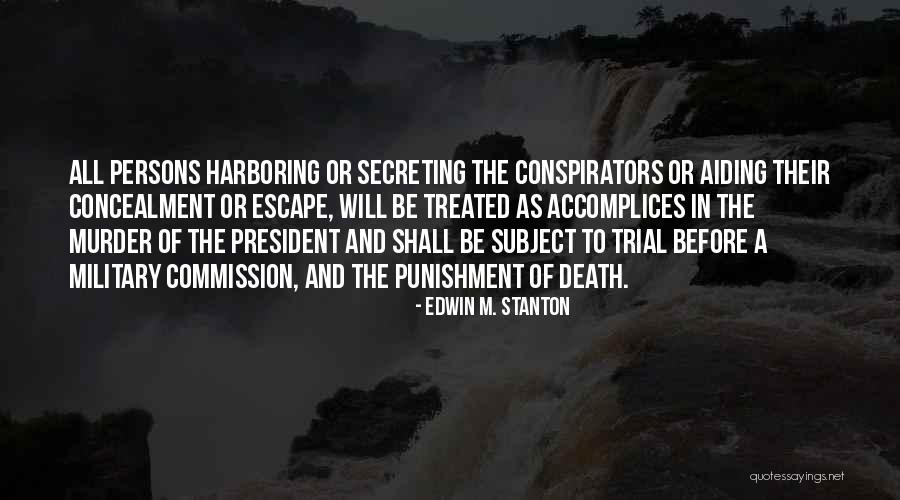
All persons harboring or secreting the conspirators or aiding their concealment or escape, will be treated as accomplices in the murder of the President and shall be subject to trial before a military commission, and the punishment of death. — Edwin M. Stanton
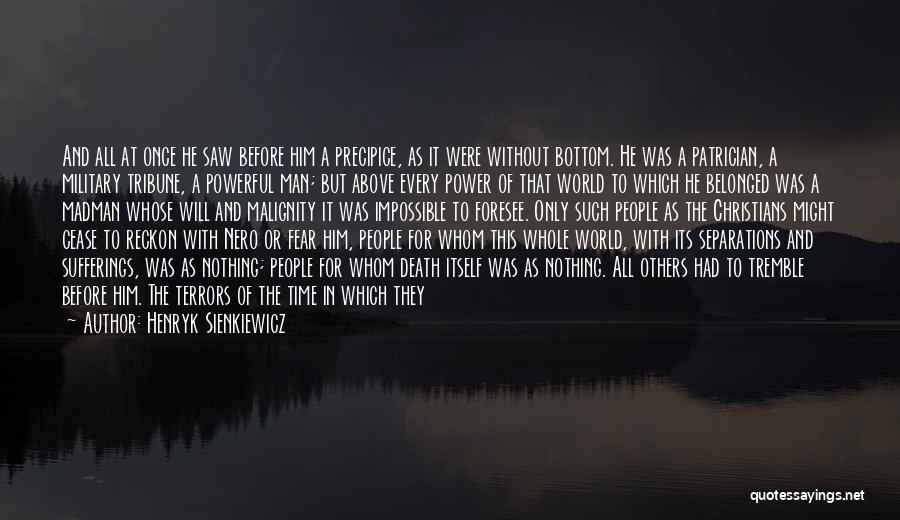
And all at once he saw before him a precipice, as it were without bottom. He was a patrician, a military tribune, a powerful man; but above every power of that world to which he belonged was a madman whose will and malignity it was impossible to foresee. Only such people as the Christians might cease to reckon with Nero or fear him, people for whom this whole world, with its separations and sufferings, was as nothing; people for whom death itself was as nothing. All others had to tremble before him. The terrors of the time in which they lived showed themselves to Vinicius in all their monstrous extent ... Vinicius felt, for the first time in life, that either the world must change and be transformed, or life would become impossible altogether. He understood also this, which a moment before had been dark to him, that in such times only Christians could be happy. — Henryk Sienkiewicz
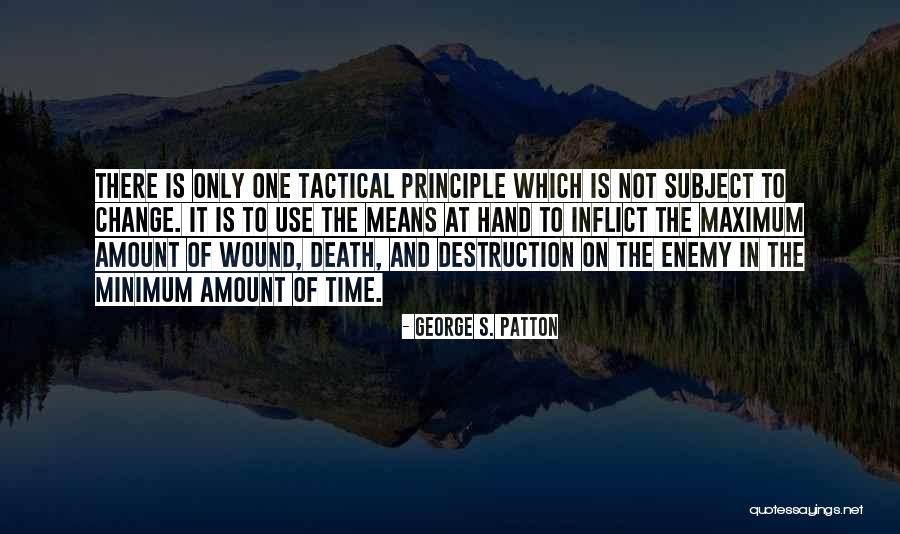
There is only one tactical principle which is not subject to change. It is to use the means at hand to inflict the maximum amount of wound, death, and destruction on the enemy in the minimum amount of time. — George S. Patton
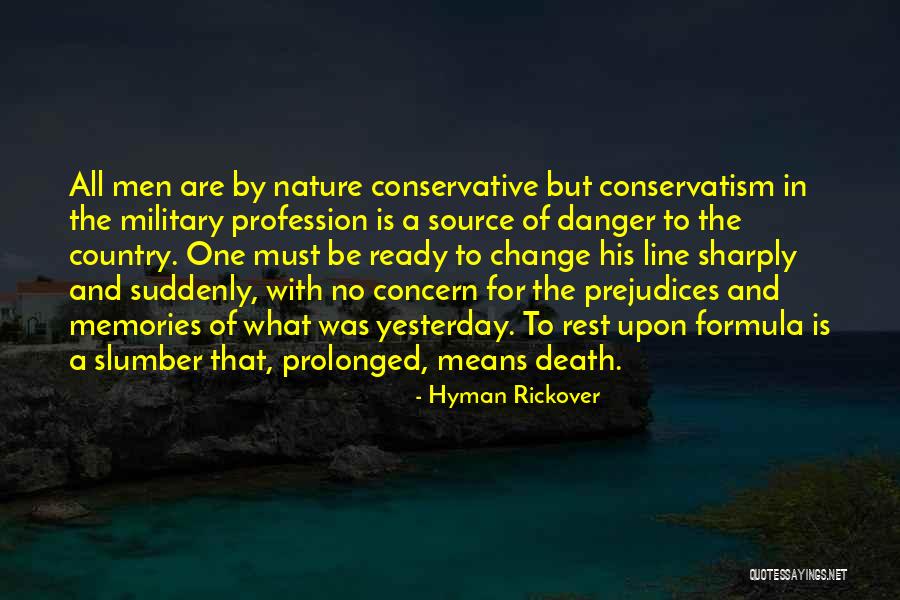
All men are by nature conservative but conservatism in the military profession is a source of danger to the country. One must be ready to change his line sharply and suddenly, with no concern for the prejudices and memories of what was yesterday. To rest upon formula is a slumber that, prolonged, means death. — Hyman Rickover
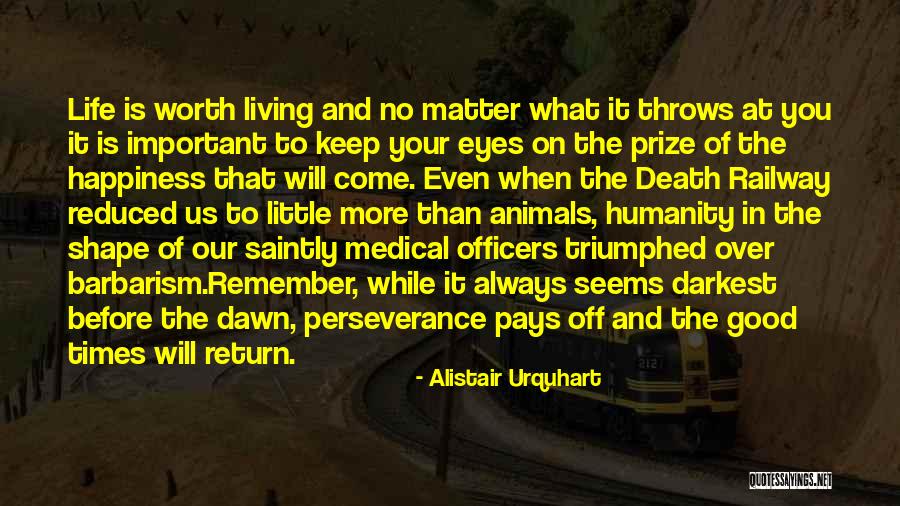
Life is worth living and no matter what it throws at you it is important to keep your eyes on the prize of the happiness that will come. Even when the Death Railway reduced us to little more than animals, humanity in the shape of our saintly medical officers triumphed over barbarism.
Remember, while it always seems darkest before the dawn, perseverance pays off and the good times will return. — Alistair Urquhart
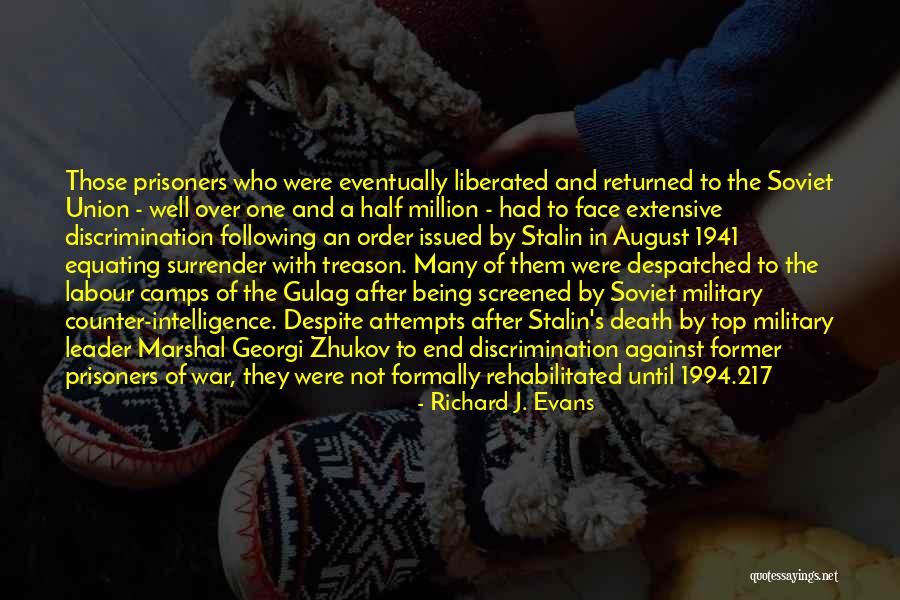
Those prisoners who were eventually liberated and returned to the Soviet Union - well over one and a half million - had to face extensive discrimination following an order issued by Stalin in August 1941 equating surrender with treason. Many of them were despatched to the labour camps of the Gulag after being screened by Soviet military counter-intelligence. Despite attempts after Stalin's death by top military leader Marshal Georgi Zhukov to end discrimination against former prisoners of war, they were not formally rehabilitated until 1994.217 — Richard J. Evans
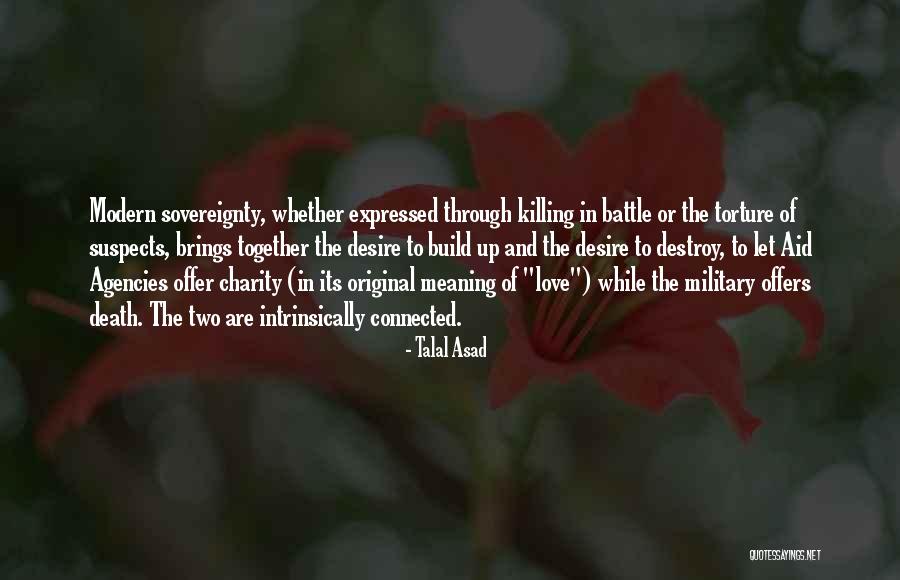
Modern sovereignty, whether expressed through killing in battle or the torture of suspects, brings together the desire to build up and the desire to destroy, to let Aid Agencies offer charity (in its original meaning of "love") while the military offers death. The two are intrinsically connected. — Talal Asad
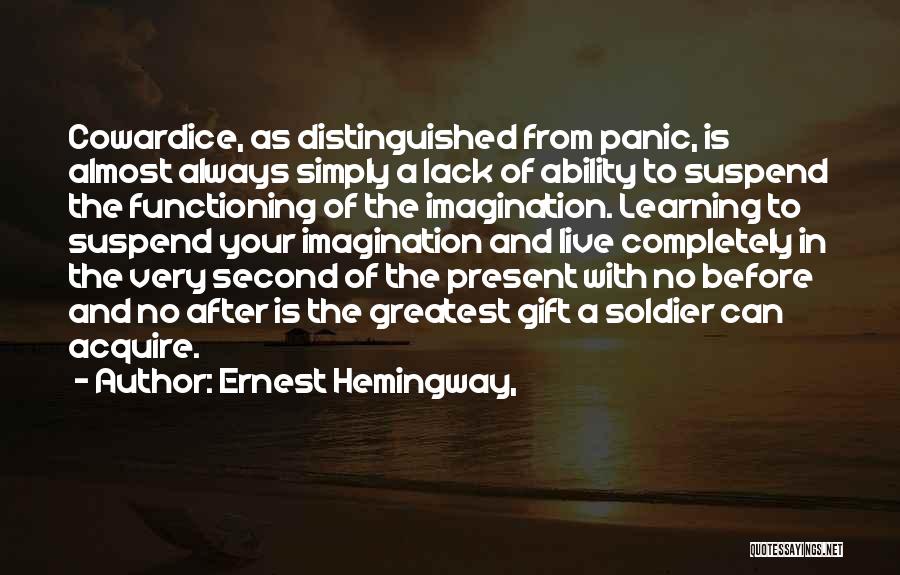
Cowardice, as distinguished from panic, is almost always simply a lack of ability to suspend the functioning of the imagination. Learning to suspend your imagination and live completely in the very second of the present with no before and no after is the greatest gift a soldier can acquire. — Ernest Hemingway,
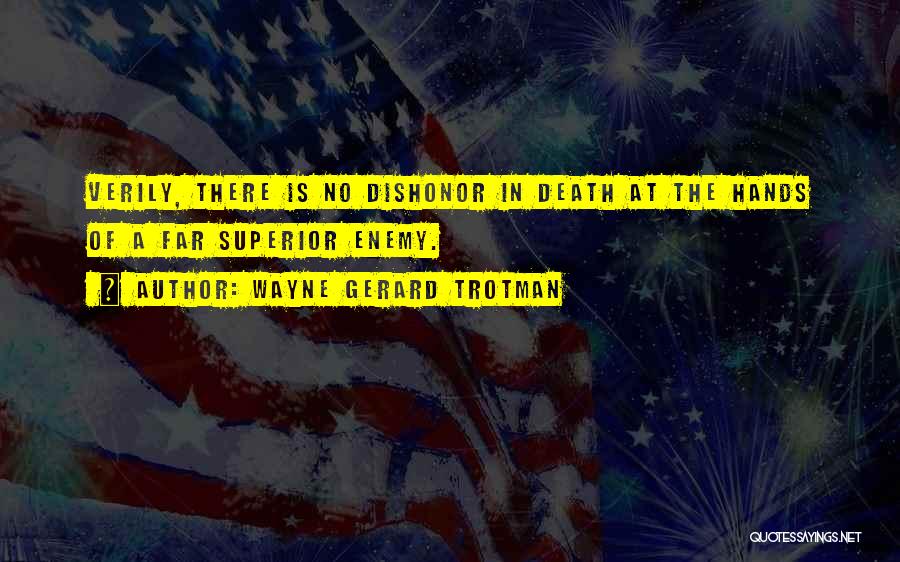
Verily, there is no dishonor in death at the hands of a far superior enemy. — Wayne Gerard Trotman
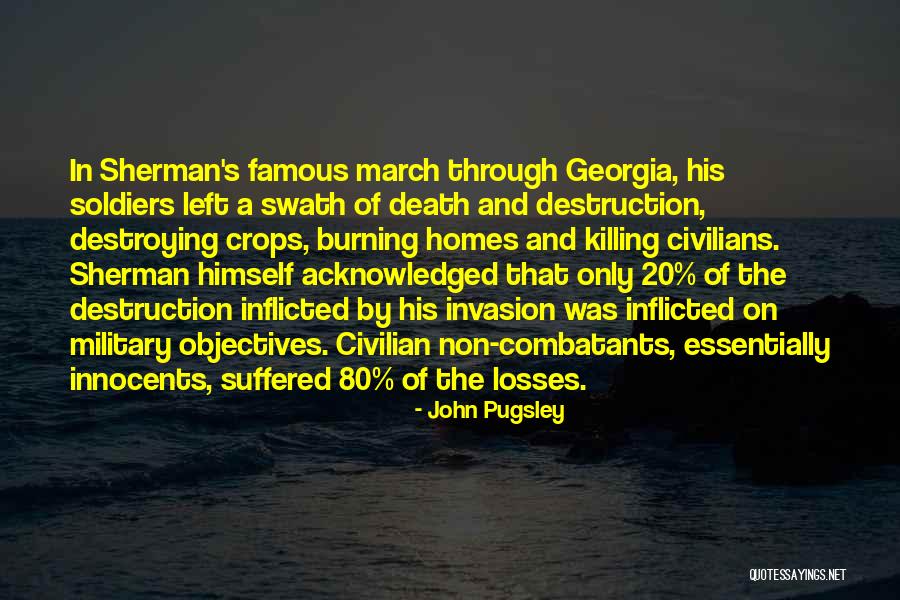
In Sherman's famous march through Georgia, his soldiers left a swath of death and destruction, destroying crops, burning homes and killing civilians. Sherman himself acknowledged that only 20% of the destruction inflicted by his invasion was inflicted on military objectives. Civilian non-combatants, essentially innocents, suffered 80% of the losses. — John Pugsley
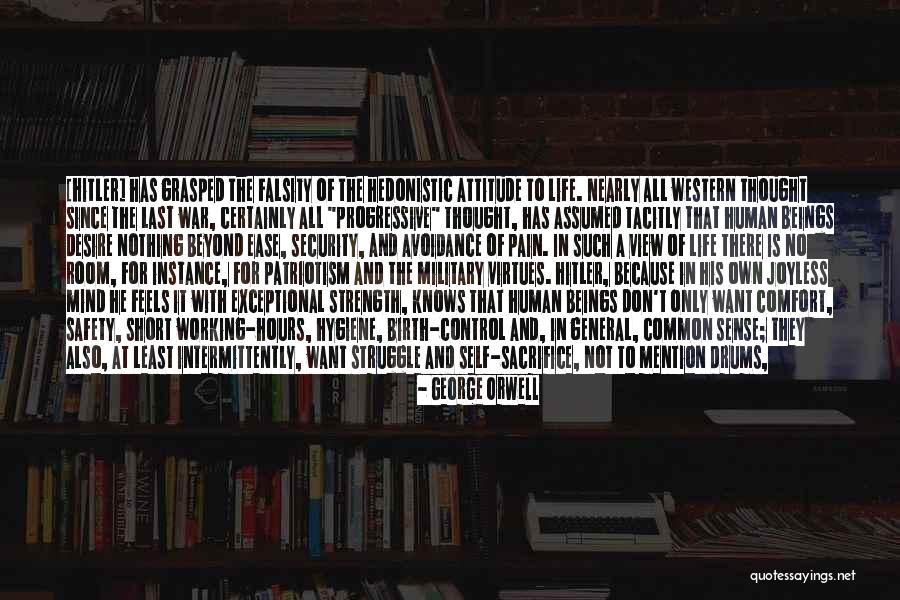
[Hitler] has grasped the falsity of the hedonistic attitude to life. Nearly all western thought since the last war, certainly all "progressive" thought, has assumed tacitly that human beings desire nothing beyond ease, security, and avoidance of pain. In such a view of life there is no room, for instance, for patriotism and the military virtues. Hitler, because in his own joyless mind he feels it with exceptional strength, knows that human beings don't only want comfort, safety, short working-hours, hygiene, birth-control and, in general, common sense; they also, at least intermittently, want struggle and self-sacrifice, not to mention drums, flag and loyalty-parades ... Whereas Socialism, and even capitalism in a grudging way, have said to people "I offer you a good time," Hitler has said to them "I offer you struggle, danger and death," and as a result a whole nation flings itself at his feet — George Orwell
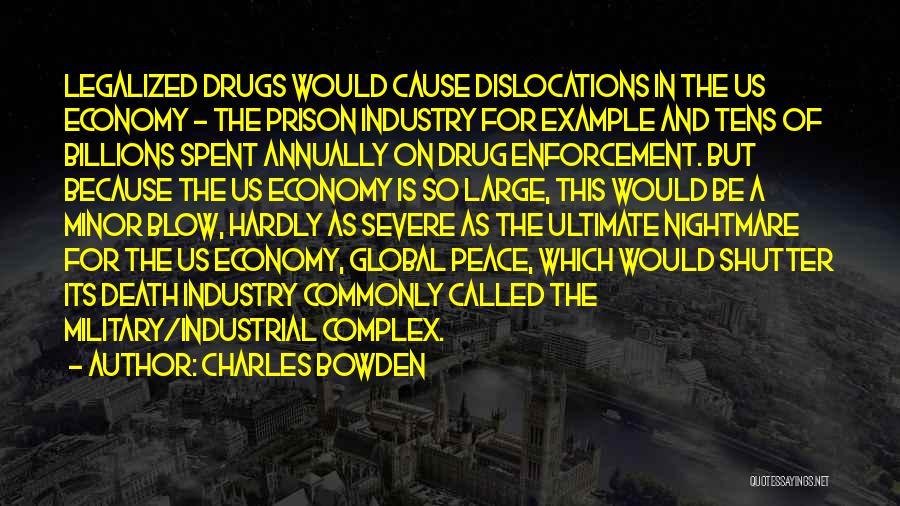
Legalized drugs would cause dislocations in the US economy - the prison industry for example and tens of billions spent annually on drug enforcement. But because the US economy is so large, this would be a minor blow, hardly as severe as the ultimate nightmare for the US economy, global peace, which would shutter its death industry commonly called the military/industrial complex. — Charles Bowden
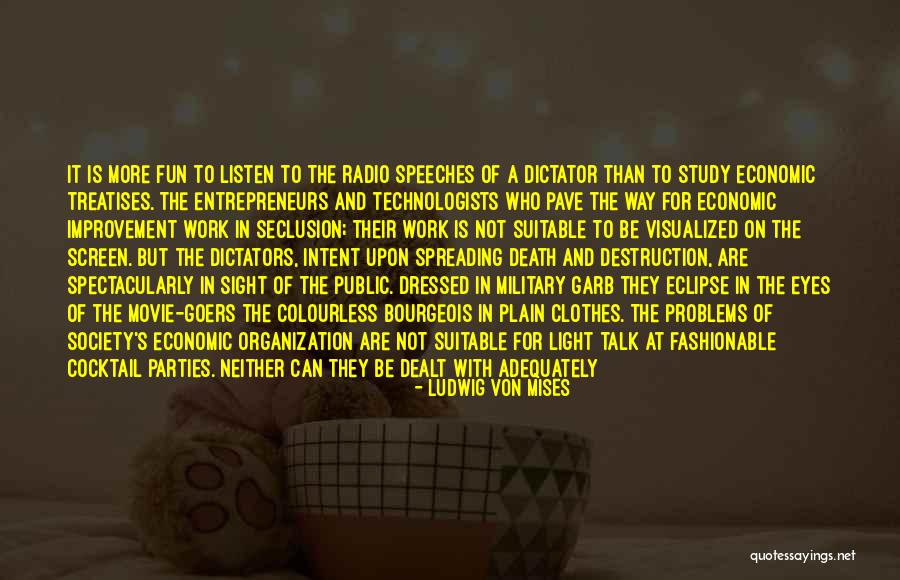
It is more fun to listen to the radio speeches of a dictator than to study economic treatises. The entrepreneurs and technologists who pave the way for economic improvement work in seclusion; their work is not suitable to be visualized on the screen. But the dictators, intent upon spreading death and destruction, are spectacularly in sight of the public. Dressed in military garb they eclipse in the eyes of the movie-goers the colourless bourgeois in plain clothes. The problems of society's economic organization are not suitable for light talk at fashionable cocktail parties. Neither can they be dealt with adequately by demagogues haranguing mass assemblies. They are serious things. They require painstaking study. They must not be taken lightly. — Ludwig Von Mises
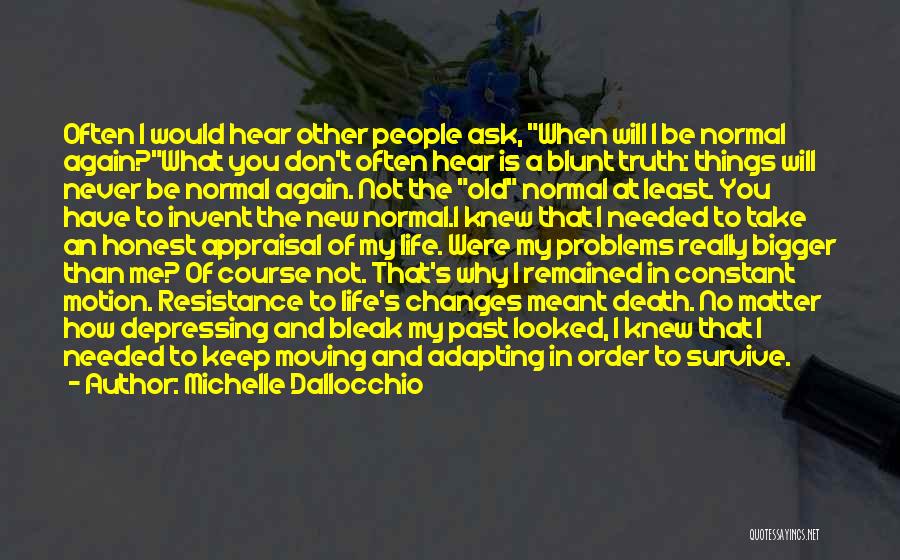
Often I would hear other people ask, "When will I be normal again?"
What you don't often hear is a blunt truth: things will never be normal again. Not the "old" normal at least. You have to invent the new normal.
I knew that I needed to take an honest appraisal of my life. Were my problems really bigger than me? Of course not. That's why I remained in constant motion. Resistance to life's changes meant death. No matter how depressing and bleak my past looked, I knew that I needed to keep moving and adapting in order to survive. — Michelle Dallocchio
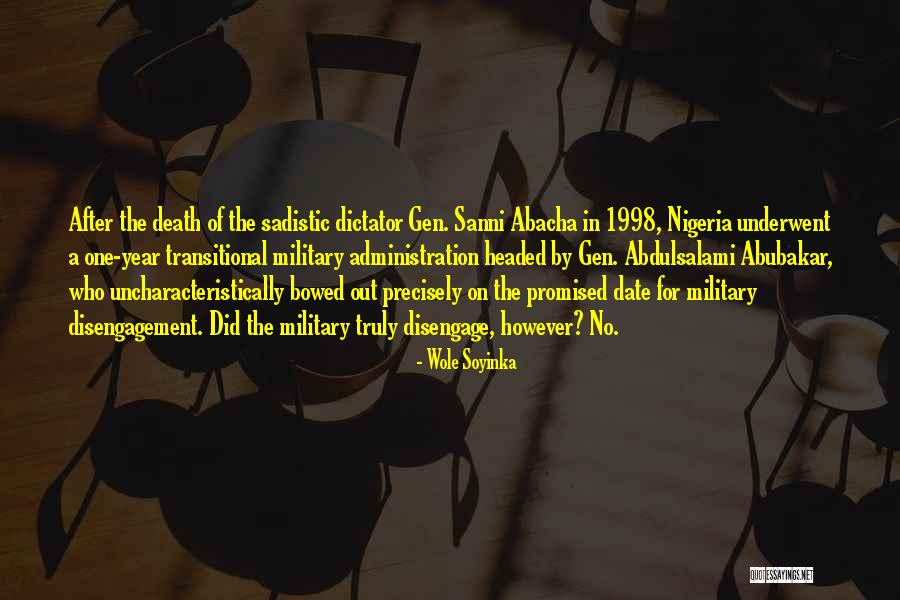
After the death of the sadistic dictator Gen. Sanni Abacha in 1998, Nigeria underwent a one-year transitional military administration headed by Gen. Abdulsalami Abubakar, who uncharacteristically bowed out precisely on the promised date for military disengagement. Did the military truly disengage, however? No. — Wole Soyinka
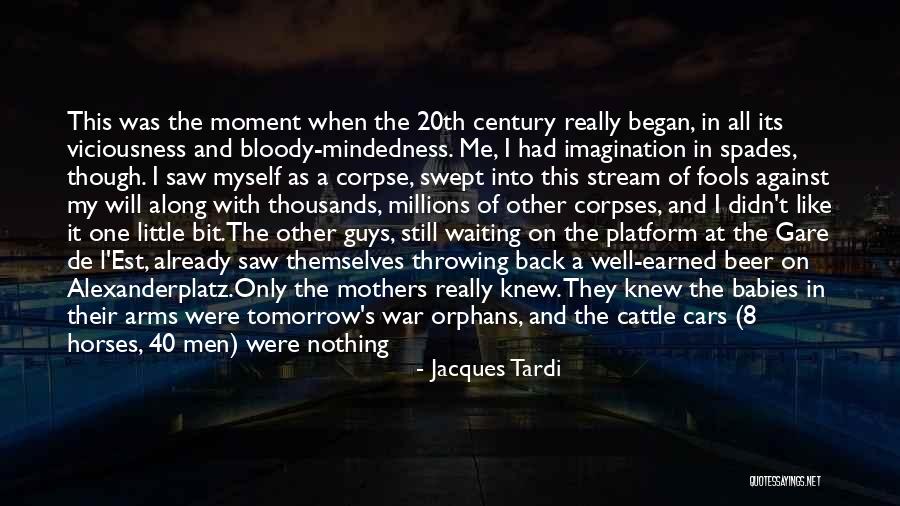
This was the moment when the 20th century really began, in all its viciousness and bloody-mindedness. Me, I had imagination in spades, though. I saw myself as a corpse, swept into this stream of fools against my will along with thousands, millions of other corpses, and I didn't like it one little bit.
The other guys, still waiting on the platform at the Gare de l'Est, already saw themselves throwing back a well-earned beer on Alexanderplatz.
Only the mothers really knew. They knew the babies in their arms were tomorrow's war orphans, and the cattle cars (8 horses, 40 men) were nothing but rail-mounted coffins joined end to end and headed for military cemeteries. — Jacques Tardi
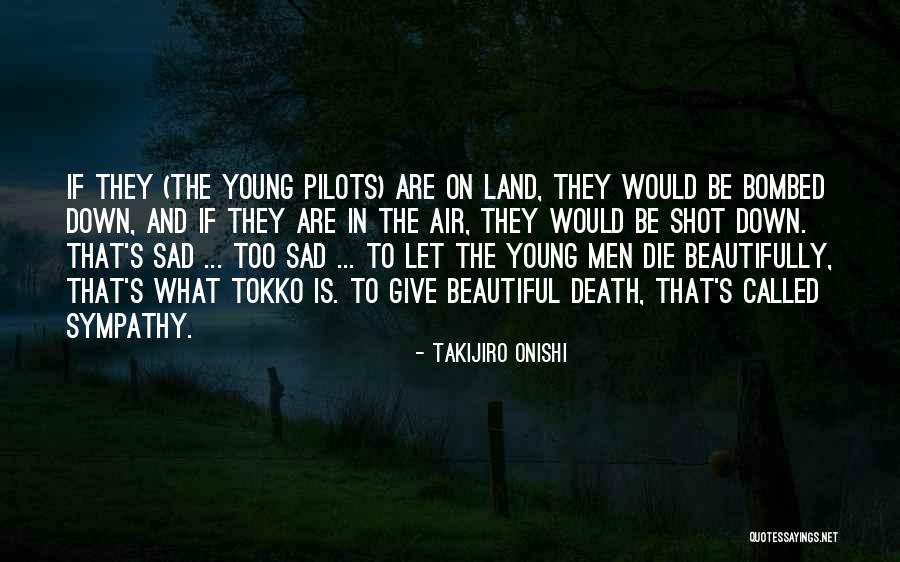
If they (the young pilots) are on land, they would be bombed down, and if they are in the air, they would be shot down. That's sad ... Too sad ... To let the young men die beautifully, that's what Tokko is. To give beautiful death, that's called sympathy. — Takijiro Onishi
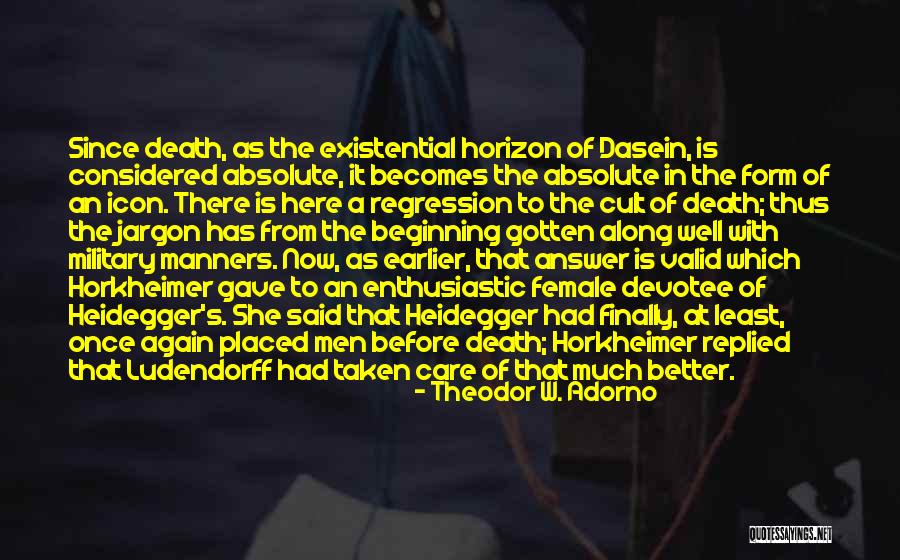
Since death, as the existential horizon of Dasein, is considered absolute, it becomes the absolute in the form of an icon. There is here a regression to the cult of death; thus the jargon has from the beginning gotten along well with military manners. Now, as earlier, that answer is valid which Horkheimer gave to an enthusiastic female devotee of Heidegger's. She said that Heidegger had finally, at least, once again placed men before death; Horkheimer replied that Ludendorff had taken care of that much better. — Theodor W. Adorno
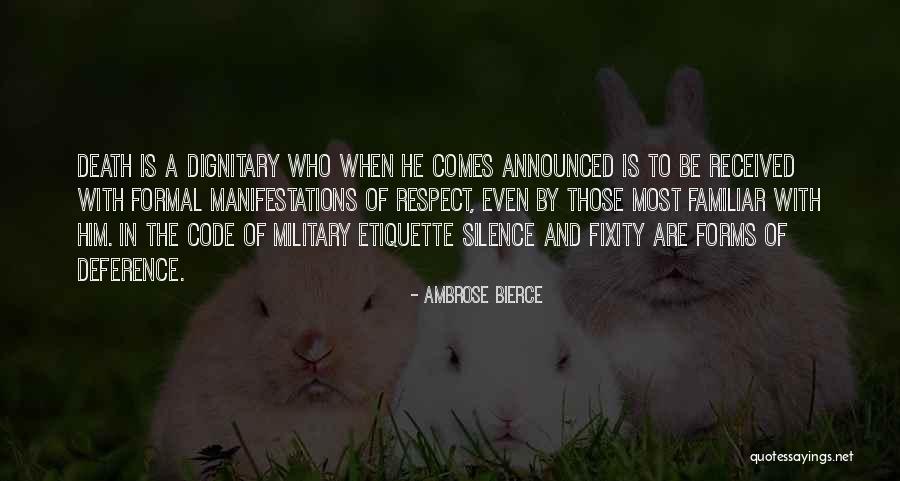
Death is a dignitary who when he comes announced is to be received with formal manifestations of respect, even by those most familiar with him. In the code of military etiquette silence and fixity are forms of deference. — Ambrose Bierce
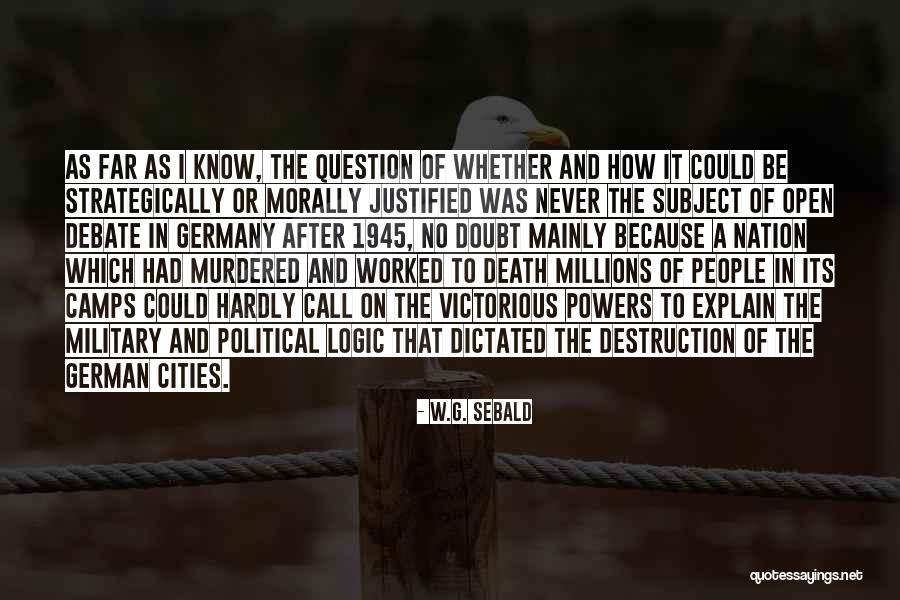
As far as I know, the question of whether and how it could be strategically or morally justified was never the subject of open debate in Germany after 1945, no doubt mainly because a nation which had murdered and worked to death millions of people in its camps could hardly call on the victorious powers to explain the military and political logic that dictated the destruction of the German cities. — W.G. Sebald
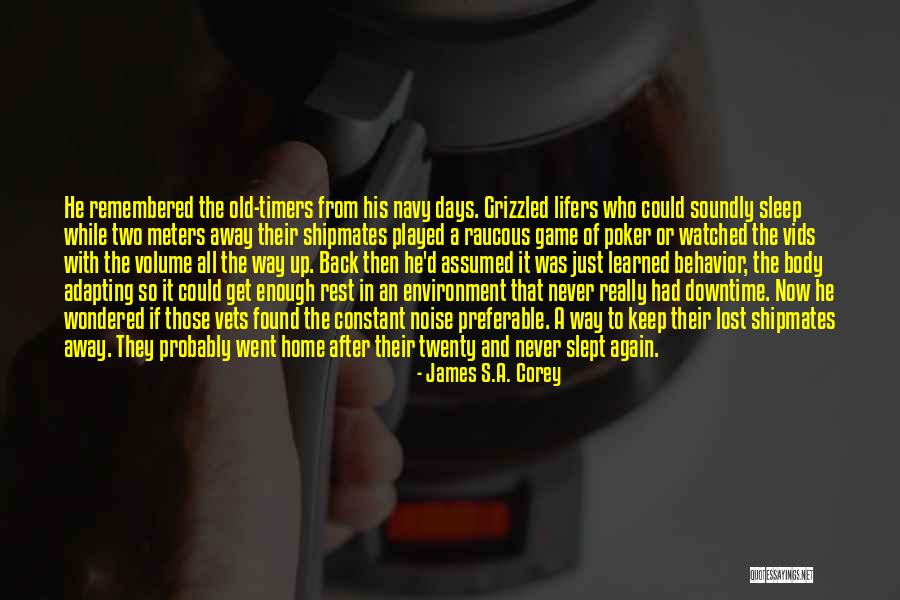
He remembered the old-timers from his navy days. Grizzled lifers who could soundly sleep while two meters away their shipmates played a raucous game of poker or watched the vids with the volume all the way up. Back then he'd assumed it was just learned behavior, the body adapting so it could get enough rest in an environment that never really had downtime. Now he wondered if those vets found the constant noise preferable. A way to keep their lost shipmates away. They probably went home after their twenty and never slept again. — James S.A. Corey
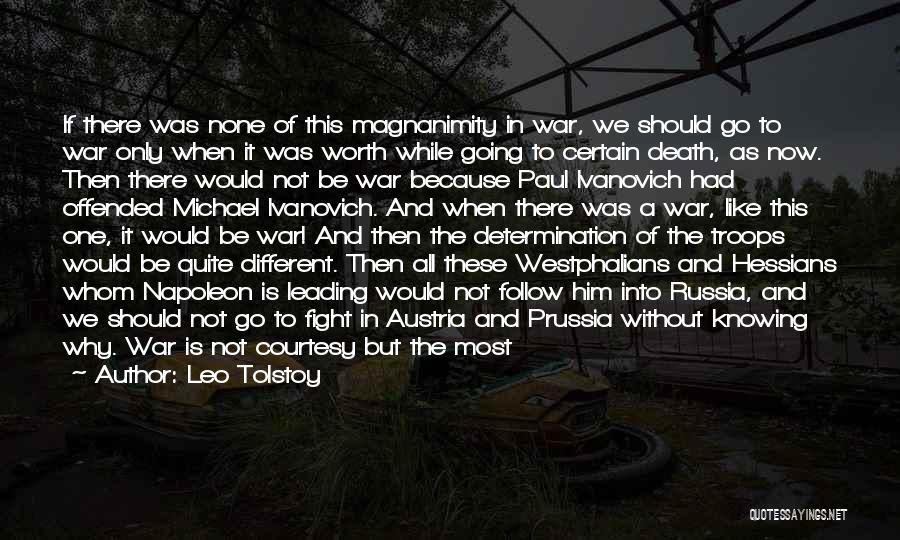
If there was none of this magnanimity in war, we should go to war only when it was worth while going to certain death, as now. Then there would not be war because Paul Ivanovich had offended Michael Ivanovich. And when there was a war, like this one, it would be war! And then the determination of the troops would be quite different. Then all these Westphalians and Hessians whom Napoleon is leading would not follow him into Russia, and we should not go to fight in Austria and Prussia without knowing why. War is not courtesy but the most horrible thing in life; and we ought to understand that and not play at war. We ought to accept this terrible necessity sternly and seriously. It all lies in that: get rid of falsehood and let war be war and not a game. As it is now, war is the favorite pastime of the idle and frivolous. The military calling is the most highly honored. — Leo Tolstoy
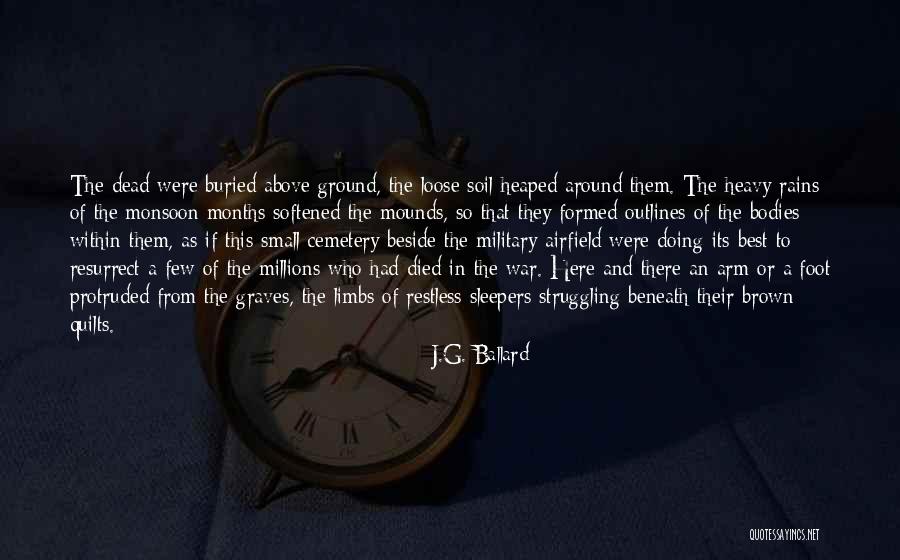
The dead were buried above ground, the loose soil heaped around them. The heavy rains of the monsoon months softened the mounds, so that they formed outlines of the bodies within them, as if this small cemetery beside the military airfield were doing its best to resurrect a few of the millions who had died in the war. Here and there an arm or a foot protruded from the graves, the limbs of restless sleepers struggling beneath their brown quilts. — J.G. Ballard
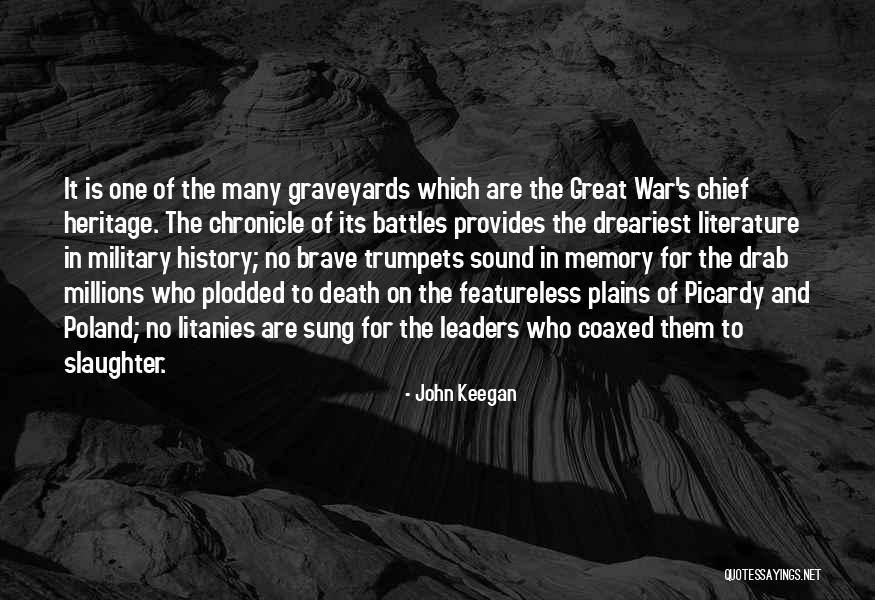
It is one of the many graveyards which are the Great War's chief heritage. The chronicle of its battles provides the dreariest literature in military history; no brave trumpets sound in memory for the drab millions who plodded to death on the featureless plains of Picardy and Poland; no litanies are sung for the leaders who coaxed them to slaughter. — John Keegan

But what worries me is not your shooting me, because after all, for people like us it's a natural death." He laid his glasses on the bed and took off his watch and chain. "What worries me," he went on, "is that out of so much hatred for the military, out of fighting them so much and thinking about them so much, you've ended up as bad as they are. And no ideal in life is worth that much baseness. — Gabriel Garcia Marquez
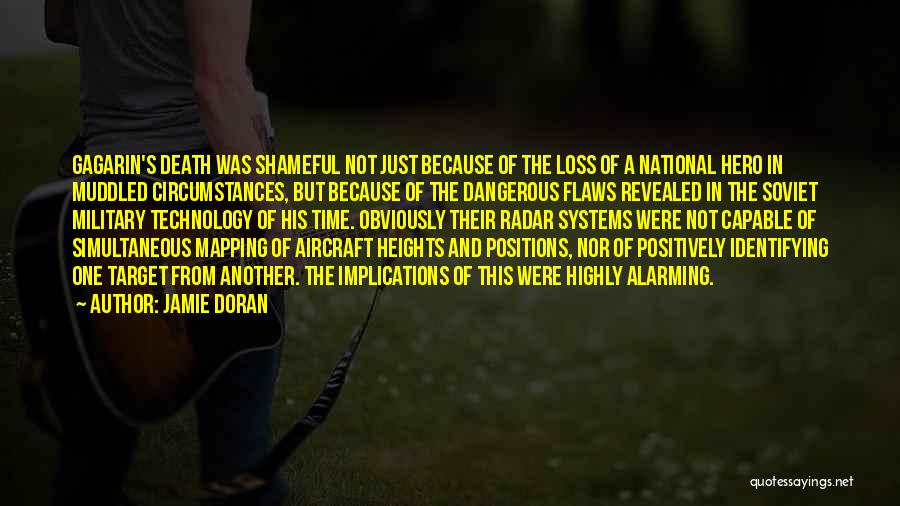
Gagarin's death was shameful not just because of the loss of a national hero in muddled circumstances, but because of the dangerous flaws revealed in the Soviet military technology of his time. Obviously their radar systems were not capable of simultaneous mapping of aircraft heights and positions, nor of positively identifying one target from another. The implications of this were highly alarming. — Jamie Doran
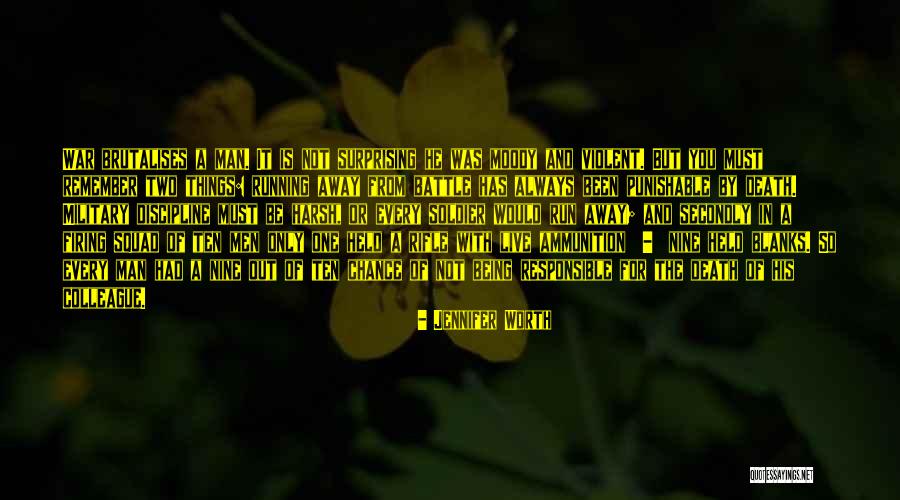
War brutalises a man. It is not surprising he was moody and violent. But you must remember two things: running away from battle has always been punishable by death. Military discipline must be harsh, or every soldier would run away; and secondly in a firing squad of ten men only one held a rifle with live ammunition - nine held blanks. So every man had a nine out of ten chance of not being responsible for the death of his colleague. — Jennifer Worth
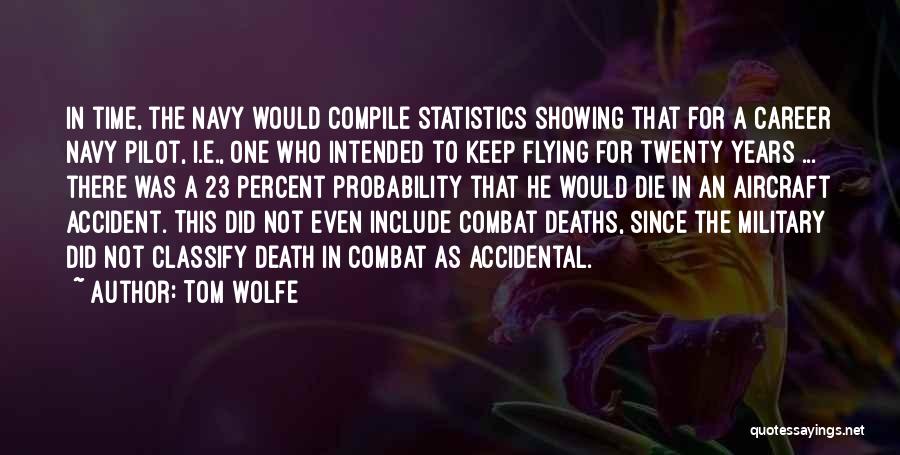
In time, the Navy would compile statistics showing that for a career Navy pilot, i.e., one who intended to keep flying for twenty years ... there was a 23 percent probability that he would die in an aircraft accident. This did not even include combat deaths, since the military did not classify death in combat as accidental. — Tom Wolfe
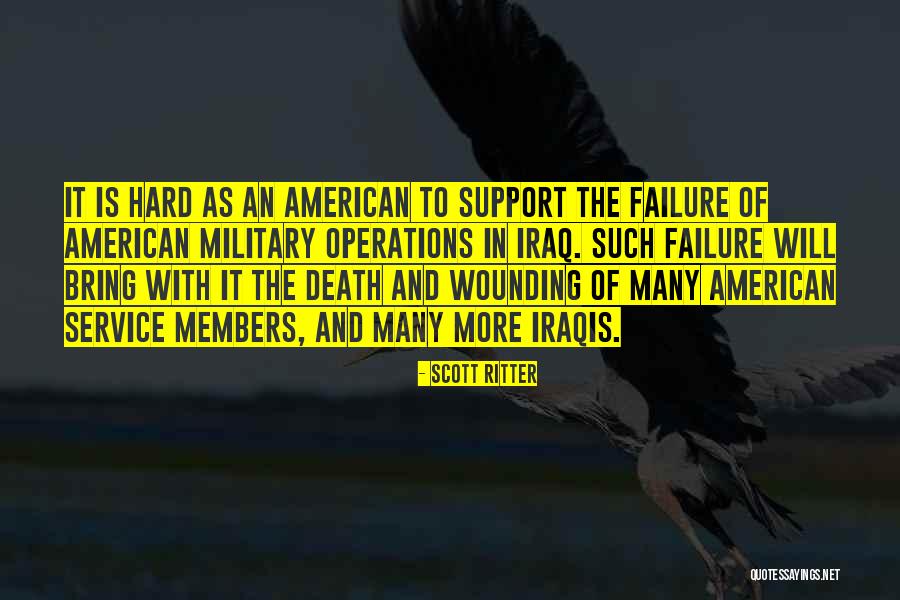
It is hard as an American to support the failure of American military operations in Iraq. Such failure will bring with it the death and wounding of many American service members, and many more Iraqis. — Scott Ritter
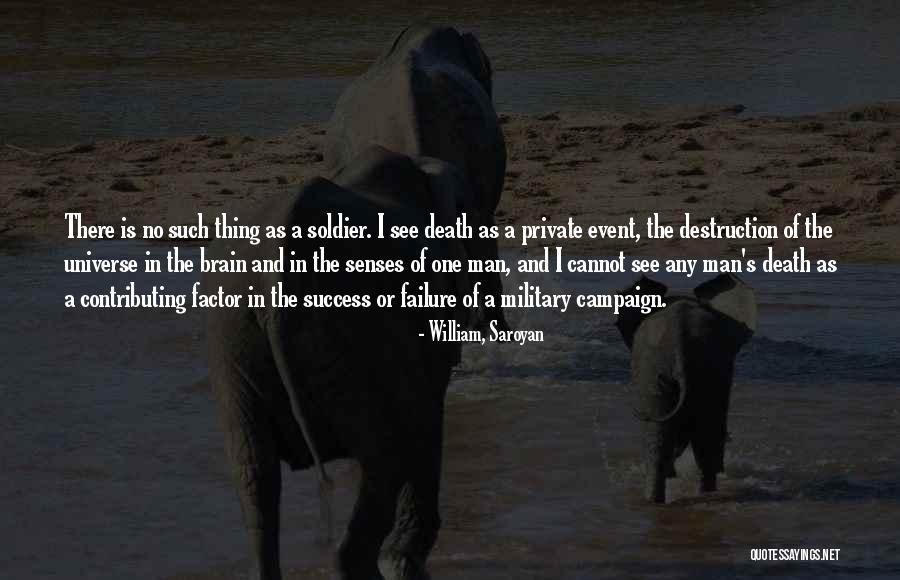
There is no such thing as a soldier. I see death as a private event, the destruction of the universe in the brain and in the senses of one man, and I cannot see any man's death as a contributing factor in the success or failure of a military campaign. — William, Saroyan
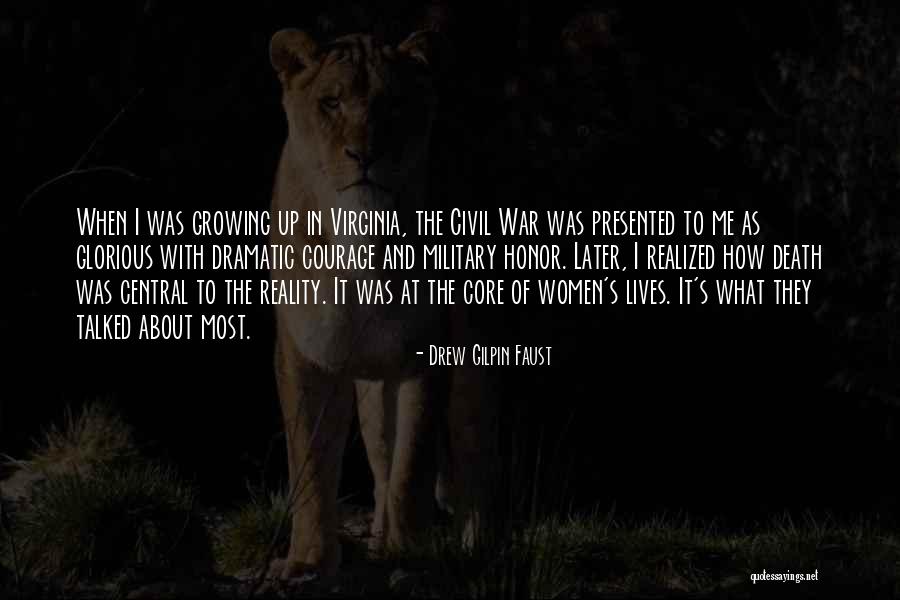
When I was growing up in Virginia, the Civil War was presented to me as glorious with dramatic courage and military honor. Later, I realized how death was central to the reality. It was at the core of women's lives. It's what they talked about most. — Drew Gilpin Faust
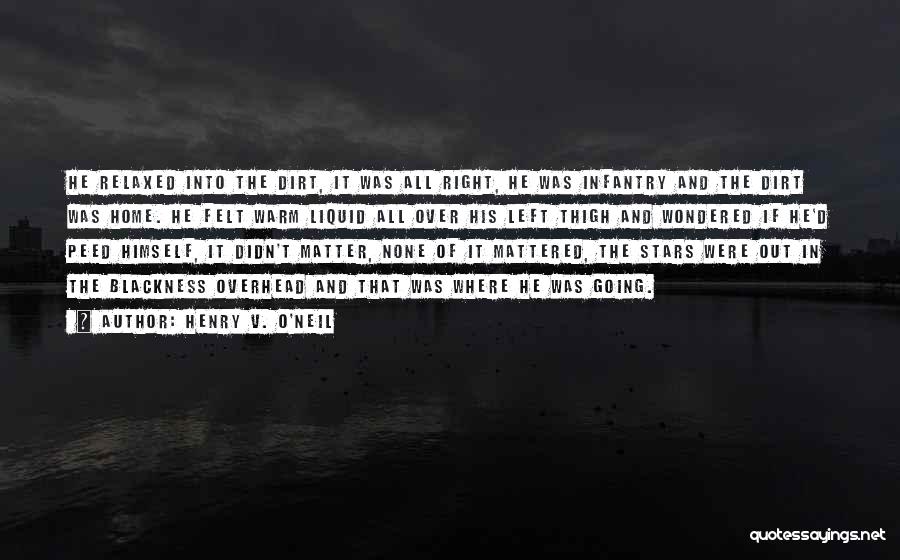
He relaxed into the dirt, it was all right, he was infantry and the dirt was home. He felt warm liquid all over his left thigh and wondered if he'd peed himself, it didn't matter, none of it mattered, the stars were out in the blackness overhead and that was where he was going. — Henry V. O'Neil
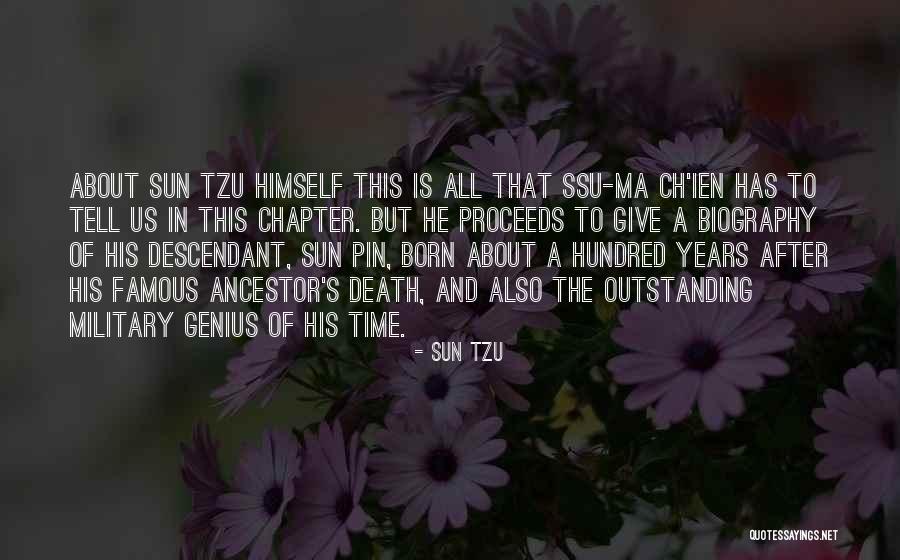
About Sun Tzu himself this is all that Ssu-ma Ch'ien has to tell us in this chapter. But he proceeds to give a biography of his descendant, Sun Pin, born about a hundred years after his famous ancestor's death, and also the outstanding military genius of his time. — Sun Tzu
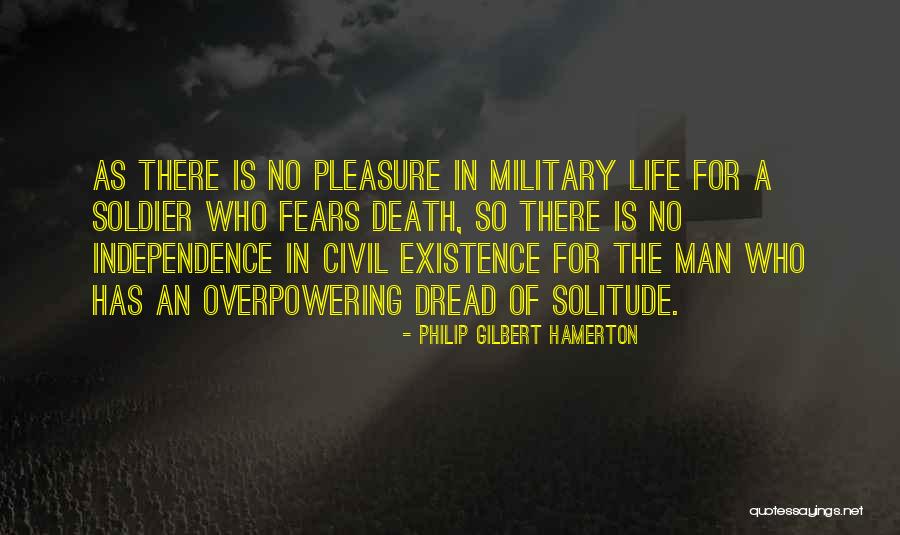
As there is no pleasure in military life for a soldier who fears death, so there is no independence in civil existence for the man who has an overpowering dread of solitude. — Philip Gilbert Hamerton
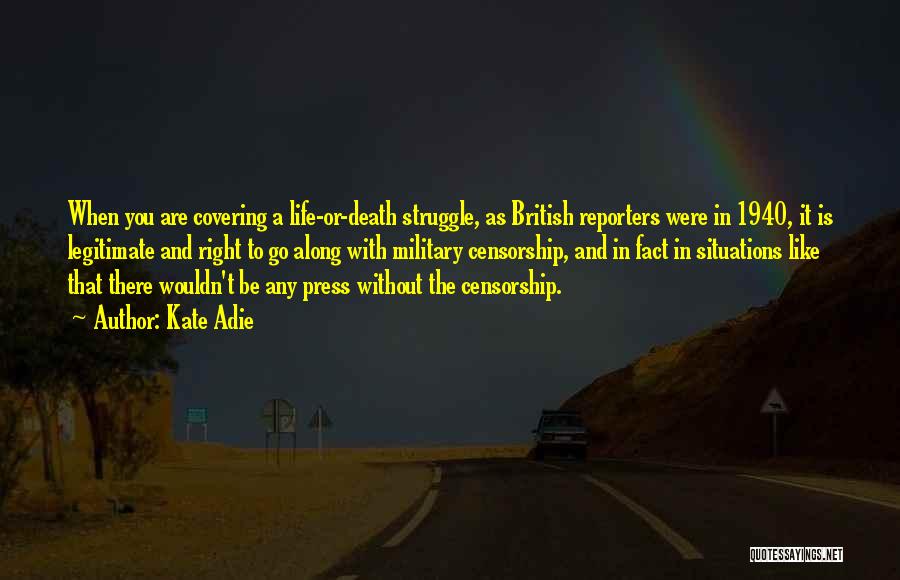
When you are covering a life-or-death struggle, as British reporters were in 1940, it is legitimate and right to go along with military censorship, and in fact in situations like that there wouldn't be any press without the censorship. — Kate Adie
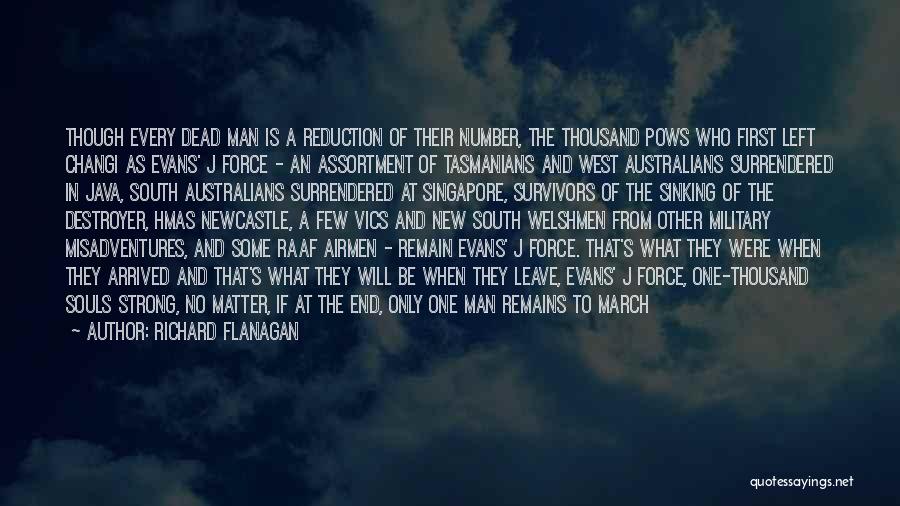
Though every dead man is a reduction of their number, the thousand POWs who first left Changi as Evans' J Force - an assortment of Tasmanians and West Australians surrendered in Java, South Australians surrendered at Singapore, survivors of the sinking of the destroyer, HMAS Newcastle, a few Vics and New South Welshmen from other military misadventures, and some RAAF airmen - remain Evans' J Force. That's what they were when they arrived and that's what they will be when they leave, Evans' J Force, one-thousand souls strong, no matter, if at the end, only one man remains to march out of this camp. They are survivors of grim, pinched decades who have been left with this irreducible minimum: a belief in each other, a belief that they cleave to only more strongly when death comes. For if the living let go of the dead, their own life ceases to matter. The fact of their own survival somehow demands that they are one, now and forever. — Richard Flanagan
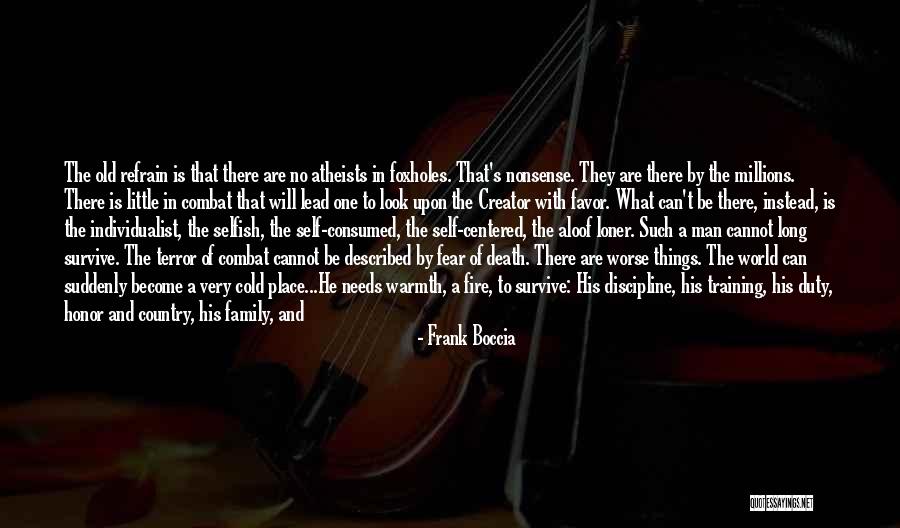
The old refrain is that there are no atheists in foxholes. That's nonsense. They are there by the millions. There is little in combat that will lead one to look upon the Creator with favor. What can't be there, instead, is the individualist, the selfish, the self-consumed, the self-centered, the aloof loner. Such a man cannot long survive. The terror of combat cannot be described by fear of death. There are worse things. The world can suddenly become a very cold place...He needs warmth, a fire, to survive: His discipline, his training, his duty, honor and country, his family, and ultimately the very oak of his manhood are thrown into the blaze, but they are not enough to save him. At the end, he needs the warmth of his comrades. Otherwise, all he will have with which to face the cold dark will be his own spent soul. — Frank Boccia
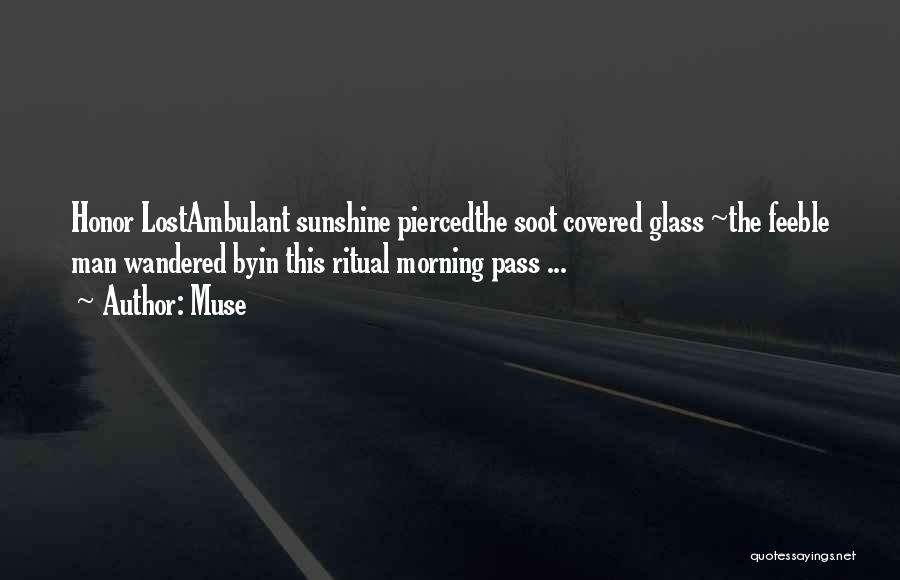
Honor Lost
Ambulant sunshine pierced
the soot covered glass ~
the feeble man wandered by
in this ritual morning pass ... — Muse
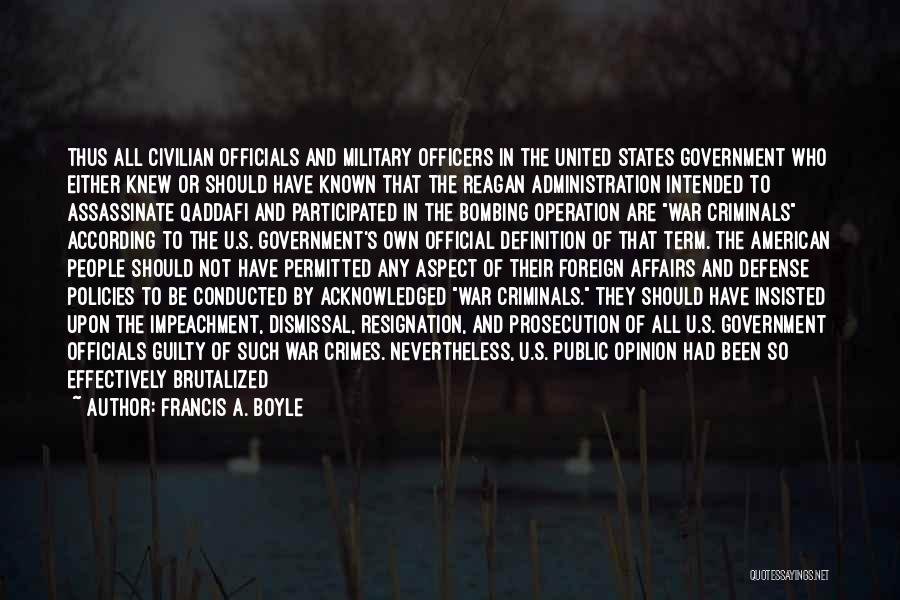
Thus all civilian officials and military officers in the United States government who either knew or should have known that the Reagan administration intended to assassinate Qaddafi and participated in the bombing operation are "war criminals" according to the U.S. government's own official definition of that term. The American people should not have permitted any aspect of their foreign affairs and defense policies to be conducted by acknowledged "war criminals." They should have insisted upon the impeachment, dismissal, resignation, and prosecution of all U.S. government officials guilty of such war crimes. Nevertheless, U.S. public opinion had been so effectively brutalized by five years of Reaganism that over three-quarters of the American people rallied to the support of their demented leadership over the destruction, injuries, and death it had inflicted upon hundreds of innocent civilians in Tripoli and Benghazi. — Francis A. Boyle





